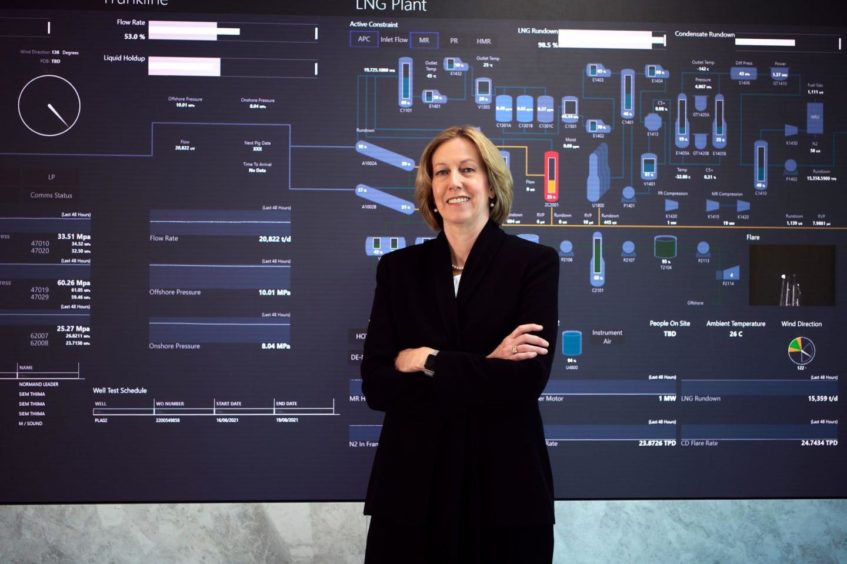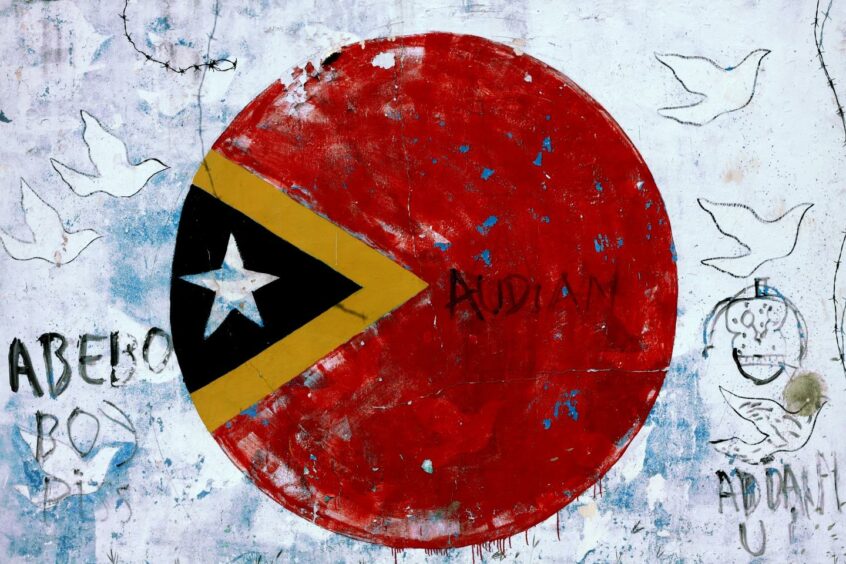
East Timor’s national oil company (NOC) TimorGAP has branded Woodside Energy (ASX:WDS) a “corporate bully” after the Australian LNG developer refused to agree to a production-sharing contract (PSC) that would commit gas from Greater Sunrise to be processed onshore East Timor.
On 23 November, Timor GAP’s management team initiated a vote of the Greater
Sunrise Joint Venture (SJV) partners on its proposal to include a special provision in the new PSC, which needs to be signed before any development of Greater Sunrise can progress.
“This provision commits the SJV, Australia and Timor Leste to agreeing that the gas from the Greater Sunrise fields will be piped to, and processed onshore, Timor Leste. Woodside and Osaka Gas voted NO. They claim they want more studies. TimorGAP believes this is a classic example of a corporate bully holding a poor, developing country to ransom just to engorge their balance sheet,” TimorGAP said in a statement, on 2 December, posted on Linkedin.
TimorGAP, which holds a 56.56% share in Greater Sunrise, added that “it is unreasonable for a small shareholder to hold the major shareholder hostage to the small shareholder’s priorities and operational preferences.”
Woodside has a 33.44% stake in Greater Sunrise and Japan’s Osaka Gas holds the balance of 10%. About 70% of Greater Sunrise – consisting of the Sunrise and Troubadour fields – lies in East Timor’s seabed following a 2018 maritime boundary deal with Australia.
“TimorGAP realises that Woodside has many other competing projects, but Greater Sunrise is Timor Leste’s only potential income producing project ready to develop. East Timor, also known as Timor Leste, “cannot afford any further unnecessary delays or be constrained by the actions or inactions of the operator and minority shareholder,” added TimorGAP.
“For the gas, after cost-recovery and before taxes, Woodside’s share is 16.7%, Osaka Gas is 5%, Australia is 15% and Timor-Leste/TimorGAP is 63.3%,” noted the NOC.
“For Woodside, this is just another project. For the people of Timor Leste, Greater Sunrise is an economic imperative that is desperately needed to provide revenue, education, jobs, infrastructure development, and energy security. Therefore, bringing Greater Sunrise gas to Timor Leste’s southern coast remains the only acceptable option for Timor GAP and the Timor Leste government,” added TimorGAP.
“Timor Leste’s future prosperity, energy security, and economic independence is intrinsically tied to development of Greater Sunrise and bringing the gas to Timor Leste’s southern coast. It is a technically and commercially viable option – supported by independent technical studies produced by world-class engineering firms and paid by TimorGAP because the operator wasn’t conducting these studies,” said the NOC.
“Very recently, with pressure from TimorGAP to accept the results of these world-class studies, Woodside proposed that new studies be conducted. However, as the operator, Woodside has had more than enough time and opportunity to update old studies, undertake new studies, propose options, seek agreement from stakeholders, and prepare detailed plans for this project,” continued the NOC.
“Woodside should respect Timor Leste’s sovereignty. The time for inaction, more new studies, and excuses has ended. The technology and skills are readily available to safely build a much-needed, world-class, carbon-neutral, natural gas project in the Timor Sea and onshore Timor Leste. In a Woodside Press Conference, on Thursday, December 1, 2022, the CEO acknowledged that Timor GAP’s studies confirmed the technical viability,” claimed TimorGAP.
“She (Meg O’Neill, CEO of Woodside) worried that the commerciality of a Timor Leste-based project had been Woodside’s primary concern, but the use of modular LNG plants might improve that assessment. TimorGAP has already been considering these modular designs. Furthermore, the States of Timor Leste and Australia share 50% of the net production after cost recovery, with 70% of that production share going to Timor Leste. When the value to the host nation is included, the commerciality model is compelling. Timor GAP will continue to push for immediate action, cooperating with the States (Timor Leste and Australia) joint efforts to complete the legal and fiscal regimes so that the new Production Sharing Contract (PSC) can be signed in early 2023,” said TimorGAP.
Woodside had previously insisted that only onshore processing of Sunrise gas in Darwin, northern Australia, would be acceptable, highlighting commercial reasons and technical risks associated with a brand new development in East Timor.
However, at an investor briefing on 1 December, Meg O’Neill, who was appointed permanent CEO of Woodside in August 2021, made a significant about-turn on the company’s position towards Sunrise development.
She said Woodside now recognised the importance of an onshore development in East Timor for that country and therefore Woodside had reopened talks around potential development concepts for Sunrise in East Timor.
At the investor briefing, Andy Drummond, head of exploration and development at Woodside, said that “the field has a couple of development options including sending the gas to Australia to leverage existing LNG plants or a greenfield LNG train in Timor Leste. Both have the opportunity to aid the communities in Timor Leste. The current focus is on agreeing the terms of the production sharing contract between the two countries and the joint venture and selecting the development concept.”
Laying pipelines from Sunrise to East Timor, across a deep-sea trough, also referred to as a trench, has always been a huge technical challenge to any development in the Southeast Asian nation.
But O’Neill said that “over the years we’ve looked at Sunrise many, many different times. We have done technical pipeline studies to understand the feasibility of going across the trench. Those studies have always indicated that with the right will, the right engineering, the right execution plan, that you can execute that scope of work.”
“The challenge has always been the economics. If you look at Darwin – so there are two LNG plants in Darwin. They both have port infrastructure. There’s space at both of those locations to build additional trains. So the cost of LNG processing capabilities – you have a longer pipeline but you just have to build a train, not all of the associated greenfield equipment which would have to be built in Timor.”
“That said, there has been a lot of work in the industry over the past few years and you can look at some of the things that have been done in the Gulf of Mexico. For example, looking at modular construction, looking at different approaches. The Commonwealth LNG project that we’ve signed offtake agreements with, is one that’s using a modular construction and very different designs,” she added.
“So the Timorese are very keen to have that development in country and we recognise it is an important national project for them, so we feel like it’s appropriate to reopen the concept evaluation, understand the technologies, understand the technical challenges. Look, Timor-Leste has a lot of international friends. International friends may want to help with some of that infrastructure that doesn’t exist today in Timor that would exist if we went to Darwin,” she said.
Indeed, O’Neill’s predecessor Peter Coleman, previously said Woodside may invest in the project’s upstream section only, leaving East Timor to finance the onshore export plant on its soil and pipelines. Woodside had indicated that it could first develop the field’s large liquids resources, leaving the gas to be produced through an onshore LNG export facility at a later date.
Perhaps, O’Neill’s talk of East Timor’s “international friends” – which the country’s leadership regular boasts about – could be a nod for these friends to finance the onshore infrastructure. On a visit to Australia in September, East Timor’s President Jose Ramos-Horta urged Canberra to back the pipeline to East Timor and flagged that Indonesia, South Korea, Japan, and China could become potential investors in Greater Sunrise.
Canberra has stated it has no preference where the gas is processed – in Australia or East Timor. The gas and condensate field is relatively insignificant for resource-rich Australia.
Perhaps, now is the time for TimorGAP and President Horta to engage their “international friends” support for their proposed development of Sunrise.
Moreover, as several analysts have noted previously, Woodside would probably be more than happy to sell its share of Sunrise to TimorGAP. This would give almost total control of the field’s development pathway to East Timor’s NOC.

 © Supplied by Woodside
© Supplied by Woodside © Damon Evans/DCT Media
© Damon Evans/DCT Media